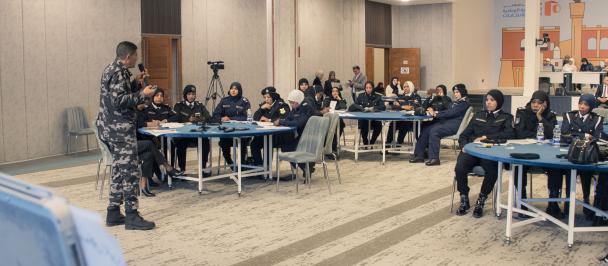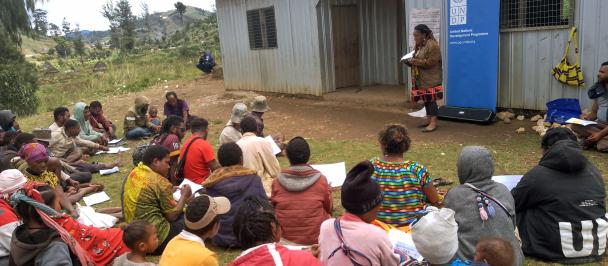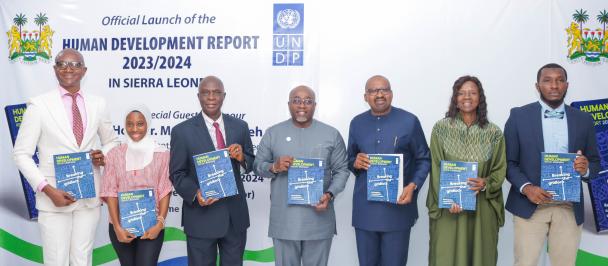Dr. Mema Motusaga - The Academic, Gender Specialist and CEO
June 30, 2022
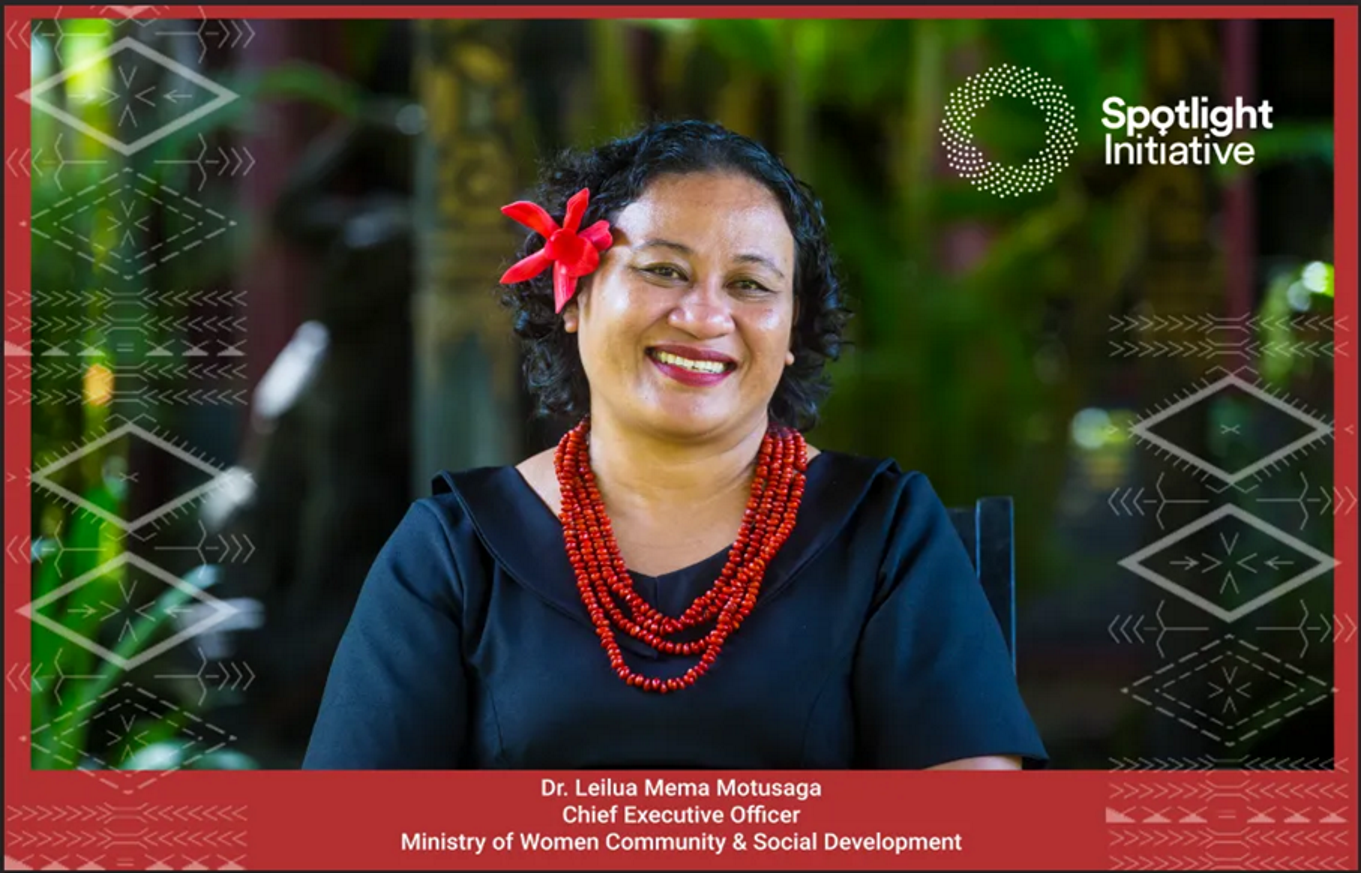
Dr. Mema Motusaga is a strong gender and human rights advocate, married and a mother of four. She hails from the villages of Saleilua Falealili, Salani, Tuanai and Iva in Savaii. She served under the former Ministry of Youth, Sports and Cultural Affairs in the Youth Division from 2000 to 2003 and continued as the Senior Youth Officer from 2003 to 2006 under the Ministry of Women, Community and Social Development, after the Samoan government’s realignment where the Division of Youth was merged with the Department of Women Affairs and Internal Affairs to formulate the Ministry of Women, Community and Social Development (MWCSD). Dr. Motusaga left to do her Master’s Degree and upon return, she served at the National University of Samoa (NUS) from 2008 to 2009. She rejoined the MWCSD from December 2009 to 2011 as the Samoa Country Focal Officer to manage the Legislative Change Project on Eliminating Violence against Women and Girls, a project funded by the Regional Rights Resource Team (RRRT). Upon completion of her PhD in Gender Studies, she held the portfolio of Samoa Gender Specialist and Programme Manager from 2015 to 2018 for the Samoa Women Shaping Development programme, under the Division for Women of the MWCSD, that funded and commissioned the 2017 Samoa Family Safety Study on family violence. She worked as a Senior Lecturer for Gender and Development Studies at NUS before joining the Secretariat of the Pacific Community as the Team Leader for Youth and Social Inclusion under the Social Development Programme, from November 2018 to 2021, before heading back home to take up the current leadership role for the MWCSD.
“O le fuata ma lona lou, o le lou ma lona fuata.” (Each crop has its own harvesting pole, yet the harvest pole for April may not be used for December.)
Such were the reflections of Dr. Mema Motusaga, Chief Executive Officer of the Ministry of Women, Community and Social Development, when the United Nations Development Programme Spotlight Initiative sat down with her recently to discuss how the joint European Union and United Nations Spotlight Initiative has impacted the Ministry’s work.
“The Spotlight Initiative has been a real blessing; it has enabled the Ministry to put in place and enact some of its mandated functions as the lead Ministry on the work of gender equality through the pathway of ending violence. To reflect on the Samoan proverb mentioned earlier, and its synchronization with the Spotlight Initiative, it has allowed through its approach, or ‘harvest pole’ if you will, to view the Samoa National Gender Equality and Rights of Women and Girls Policy framework to encompass all areas that impact on the quality of life of a person. It is not just about ending violence, but ensuring Samoan women and girls are capable, qualified and have the abilities to lead within their own communities at any given time or season,” said Dr. Mema.
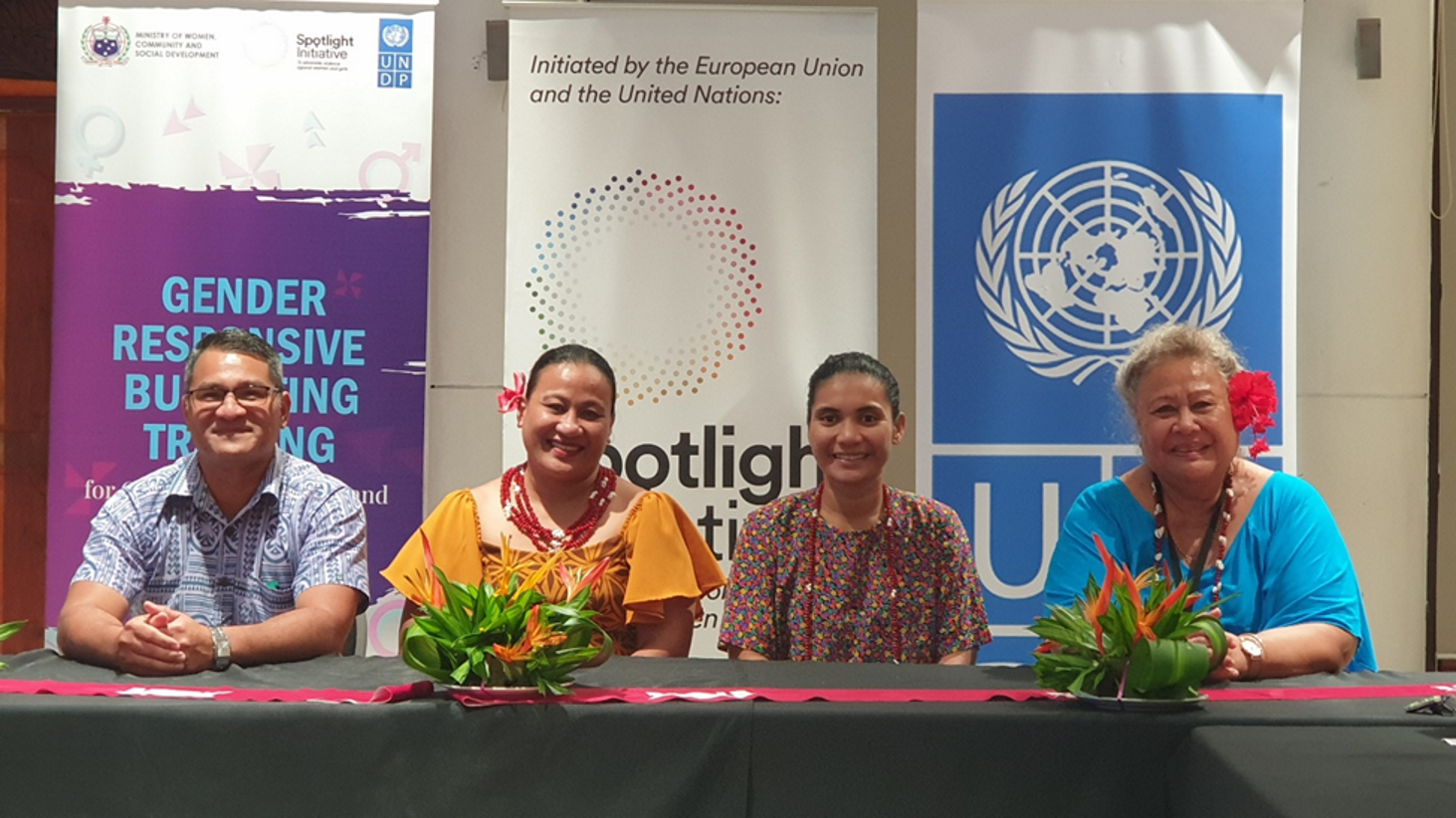
“Through the partnership with UNDP, the Samoa Gender Responsive Budgeting (GRB) initiative that is ongoing, it will help us operationalize the policy vision for gender equality and empowerment of women and girls. It will help us advance this work through the key line ministries such as Finance, Health, Education and Agriculture, as these are the traditional ministries where most of the resources are channeled and areas where gender lens are hardly activated. We now have for the first time, as a result of the work with UNDP, produced a manual on gender responsive budgeting and set up a multisectoral Gender Responsive Budgeting core group with a government and civil society membership. The group completed an introductory training on understanding and applying in practice the tools of GRB to the budgetary process to identify areas of gaps and needs of both financial and technical resources within and across ministries or sectors. The core group will also be able to assist with translating into action at the national level the future recommendations from the gender rapid assessments undertaken with UN Women’s SDG Financing project support including the Spotlight Initiative-supported national prevention framework.”
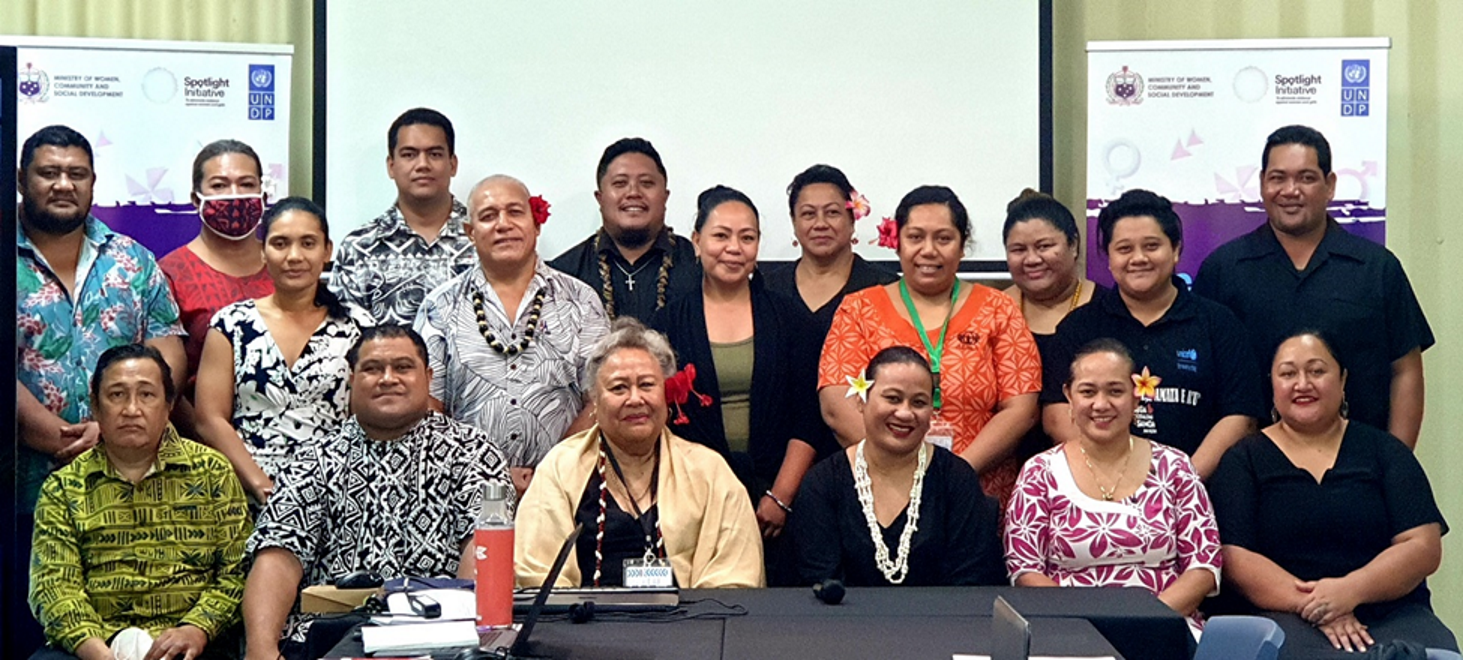
“The gender responsive budgeting work is very timely for our Ministry and the government, as we are also rolling out the district development project. We have a responsibility to ensure the criteria for funding allocation and areas of work incorporate a gender perspective to promote gender equality that responds to the different needs of men, women and Samoa’s diverse population, and center help to those who first need it the most. This where the work of the Spotlight Initiative has been a blessing as it comes at a critical juncture to support the Ministry of Women, as the gender focal point, to develop and implement a budget strategy that benefits everyone.”
Regarding how the Ministry can sustain its work in the EVAWG, or ending violence against women, space, Dr. Mema believes that: “We have in our hands the key and solutions to fix our problems. We should go back to our Samoan philosophies. Over the years, we’ve looked outside to bring in the solutions and interventions, but we also have in Samoa our own approaches that are much more relevant in our context, in the reality and practicality of this issue in Samoa.
In the cultural space, our philosophies range far and impact greatly in formulating our guiding principles that guide norms and behaviors such as alofa (love), va fetausi a’i (sacred relations), fa’aaloalo (respect). Our responsibility is to fine tune where the gaps are and contextualize approaches in accordance to their relevance and practicality in relation to issues. Samoans believe that in everything and anything you have your place in time. And this is why our beliefs and practices have been criticized over the years.
A lot of work in EVAWG has really got to do with interpretation and spirit of the human being where it is trying to rule something that is not his or hers. And where that is crucial is where the church comes in, and I urge Spotlight to invest in the work of our churches, our NGOs through the churches and the work of the National Council of Churches. In this work, we often hear that there are two main barriers, the interpretation of the Bible in relation to women, and the myths and legends of our fa’aSamoa that are used as a threat or weapons against women’s empowerment and freedom.”
In going forward, Dr. Mema said: “The Ministry’s mandate is vital at the strategic and practical levels, right down to the grassroots. The lessons learned from the last two years, is for Spotlight to strengthen the alignment of its policy and operational framework and assistance to that of the government. It is very important to recognize there are already existing mechanisms in place to do the work. To ensure sustainable interventions that work, we need to contextualize the programme within our culture, and the spiritual realm. Some of our interventions are donor-driven and I encourage the focus of Spotlight Phase 2 to build on the direction of the framework that is there in the cultural and biblical space. Secondly, to help the Ministry in the driver’s seat, to effectively support the community and grassroots level representation. There has been assistance at government and civil society. We need now to turn our efforts to build our community workers representation which is the strength of the Ministry of Women in informing its policy work and carrying out the implementation arm of the Ministry.”
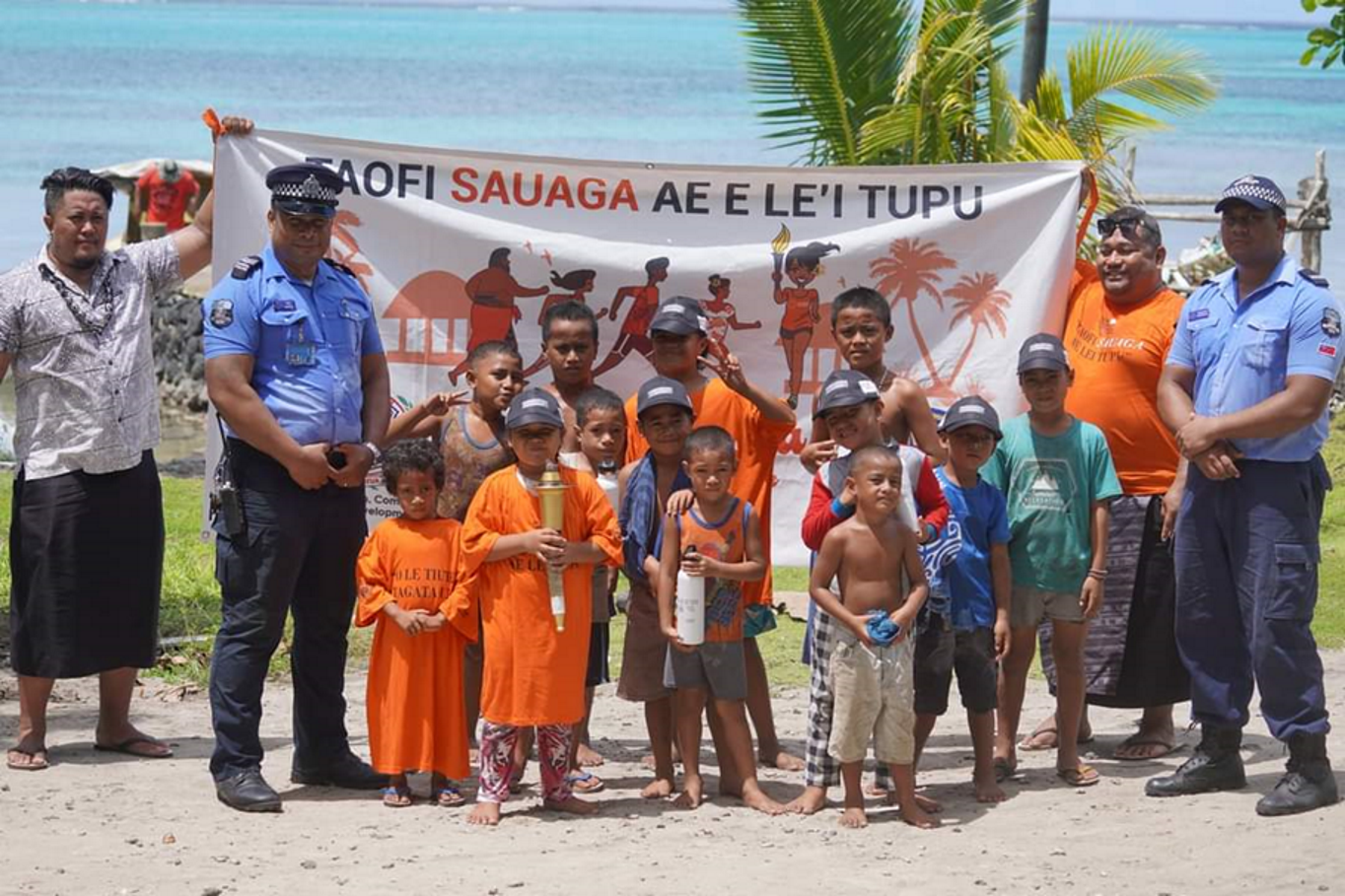
The Ministry of Women, Community and Social Development is a lead implementing partner under the joint European Union and United Nations Spotlight Initiative Samoa country programme. UNDP is supporting MWCSD through Pillar 2 – strengthening institutions of the Spotlight Initiative. The focus of the Spotlight Initiative is to eliminate violence against women and girls, as well as domestic intimate partner violence.
UNDP Spotlight CoordinatorLouisa Apelu

 Locations
Locations
